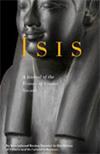欧洲对流行病的看法
IF 0.9
2区 哲学
Q2 HISTORY & PHILOSOPHY OF SCIENCE
引用次数: 0
摘要
这篇评论文章探讨了欧洲视角在过去三个世纪流行病和流行病历史上的潜力。为此,本文遵循beno本文章由计算机程序翻译,如有差异,请以英文原文为准。
The European Perspective on Pandemics
This review essay explores the potential of a European perspective on the history of epidemics and pandemics over the last three centuries. To this end, it follows Benoît Majerus’ proposal to distinguish four different “European” perspectives on the history of medicine. Europe is simultaneously an imaginary, geographical, imperial, and integrative space. As an imaginary space (1), “European” ideas about pandemics reveal a specific conception of public health and the state; as a geographical space (2), many historical case studies examined the development of comparable “European” practices at the national level; as an imperial space (3), it is necessary to provincialize Europe and ask about knowledge production and practices in non-European countries; and as an integrative space (4), European responses to pandemics and epidemics represent a neglected but important aspect of European integration. This essay can only suggest that the European perspective is an interesting analytical category for both the history of pandemics and the history of “Europe.”
求助全文
通过发布文献求助,成功后即可免费获取论文全文。
去求助
来源期刊

Isis
管理科学-科学史与科学哲学
CiteScore
1.00
自引率
16.70%
发文量
150
审稿时长
>12 weeks
期刊介绍:
Since its inception in 1912, Isis has featured scholarly articles, research notes, and commentary on the history of science, medicine, and technology and their cultural influences. Review essays and book reviews on new contributions to the discipline are also included. An official publication of the History of Science Society, Isis is the oldest English-language journal in the field.
The Press, along with the journal’s editorial office in Starkville, MS, would like to acknowledge the following supporters: Mississippi State University, its College of Arts and Sciences and History Department, and the Consortium for the History of Science, Technology, and Medicine.
 求助内容:
求助内容: 应助结果提醒方式:
应助结果提醒方式:


